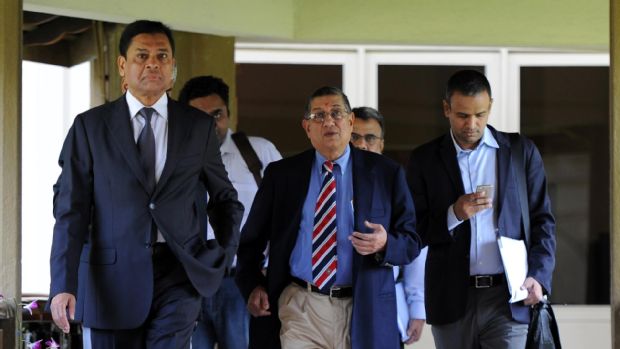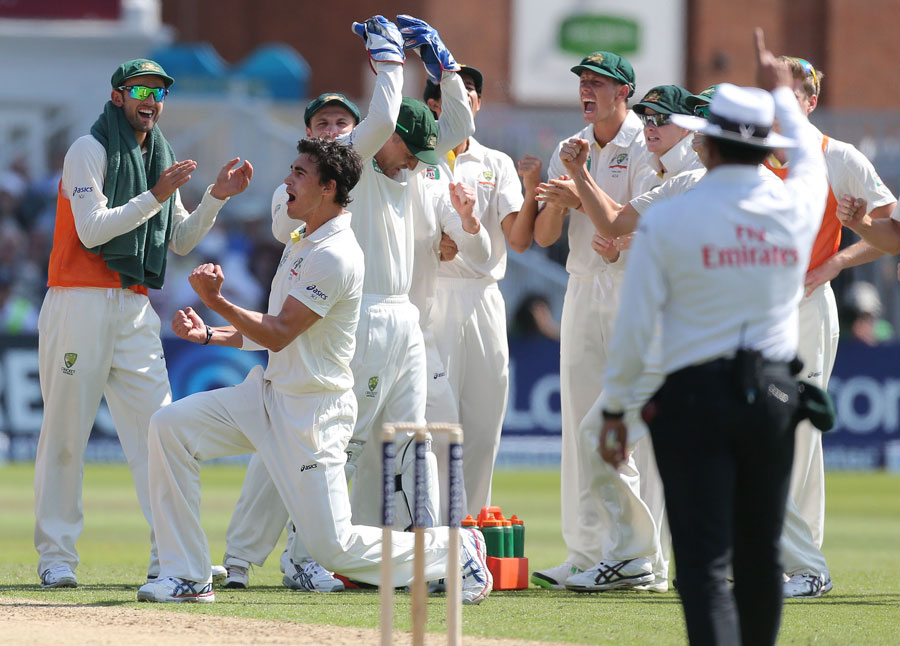“Blessed is the nation that doesn’t need heroes" Goethe. “Hero-worship is strongest where there is least regard for human freedom.” Herbert Spencer
Search This Blog
Wednesday 15 February 2023
Sunday 2 October 2022
The art and science of picking winning teams
In a world of performance data, human judgment is more vital than ever, says former England cricket selector Ed Smith in the FT
The fast bowler Jofra Archer, a brilliant talent new to cricket’s world stage, stands at the top of his run-up, flicking a white cricket ball nonchalantly in his hand. With 30,000 fans in the ground already drunk on drama, and 1.6bn watching around the world, Archer knows what’s coming. The next five minutes, his next six balls — a “Super Over”, the final way to determine a tied cricket match — will decide whether England or New Zealand win the 2019 World Cup.
“It’s so on a young man,” the TV commentator sighs about the decision to give the 24-year-old Archer the final act. “It’s a big call.” About a hundred yards to Archer’s right, I am watching on with my fellow England selector, as helpless as everyone else in the ground.
Just before the tournament, right at the eleventh hour, the decision had been made to add Archer to England’s World Cup squad. There had been plenty of public debate about the decision — England, already the top-ranked team without Archer, had been preparing for the World Cup for four years, and a popular player had been dropped to make way for him. Why take the risk?
Because Archer was exceptional. And we knew with an unusual degree of confidence that he was exceptional. Archer’s early career was unique because he’d played so much cricket in the Indian Premier League (IPL), where every match is televised. And every action in televised cricket leaves a clear data footprint — the precise speed, trajectory, bounce and revolutions of every ball bowled. This is exactly the kind of information decision-makers love to have — an X-ray of the match. And the data from the IPL was unequivocal: Archer not only merited a place in England’s 15-man squad, but also in the best XI. In fact, the data implied he’d be England’s best fast bowler. And he was, taking 20 wickets (an England record) in the tournament.
But the data only gets you so far. The moments before the Super Over proved that, too. England’s captain, Eoin Morgan, stood alongside Archer — chatting lightly, relaxed, open, a hint of mischief — a moment to enjoy. It was a masterclass in defusing pressure. So what might have been a “big call” turned into an obvious decision — thanks in part to the way Morgan handled things. Archer got his decisions spot on, and England won the World Cup.
Selection and decision-making are often framed in terms of “art versus science”, with the assumption that, in our digital age, “science” is increasingly marginalising the human factor. But making decisions — and this applies in any area, not just sport — demands weighing and reconciling different kinds of information, and drawing on differing types of intelligence. In the age of data, the question remains: where does the human dimension fit in?
---
The role of England’s chief cricket selector — which I held from 2018 to 2021 — stretches back to 1899. It was once seen as sport’s ultimate establishment position. A sober, grey worsted suit was woven into the job — folded Telegraph in one hand, black umbrella in the other. Cricket persisted with selectors — where football, for example, centralised power in the manager or head coach — partly because formal coaching arrived relatively late in cricket (England’s first head coach was appointed in 1986). Since then, cricket has mostly retained shared responsibility between selectors, coach and captain.
After all, who is on the field — and here sport is like all industries — has the greatest bearing on winning and losing. That’s why the richest and most advanced sports teams — in football and American sports — have invested heavily in data-informed recruitment, seeking an edge in identifying talent.
I was 40 when I became England selector; my co-selector, James Taylor, was 28. Our combined age was about the same as some individual England selectors from earlier decades. The impertinence of youth was compounded by the perception that our new selection system leant heavily on data and algorithms. Cricket is a conservative sport. Far from being reassuringly old-fashioned, the new selection panel was often dubbed “left field”. Innovation and tradition rubbed shoulders. That is, of course, a tricky balancing act, with risks on all sides, and while I did not know it at the time, that was probably the attraction.
Was England cricket now trying to “Moneyball” its selection strategy? Many people thought so. But the analogy is problematic. Moneyball, Michael Lewis’s classic book about the Oakland A’s baseball team, is only partly about data, and significantly about price. One way that Oakland punched above their weight was by buying undervalued players and selling over-valued ones. But for a national sports team, of course, there is no transfer market. You can’t pit your wits against other teams by trading players with, say, the old rival, Australia. England cricket has its talent pool, and that’s that.
But selectors can — and this is close to the heart of the matter in all professions — diverge from conventional wisdom about where they perceive value. And here, of course, better data is extremely helpful. If you can measure player impact more accurately, then you are getting nearer to identifying “talent that whispers”, not just “talent that shouts” (in the excellent phrasing of Rasmus Ankersen, who was co-director of football at Brentford before moving to Southampton).
This is not to suggest that data holds all the answers (the theme of many recent sports books) and that human judgment is on the road to oblivion. Yes, sport is in the midst of a data revolution, and you’d be insane not to seek better information to inform decisions. But rather than using data instead of human intelligence, the challenge is using data in tandem with the human dimension.
And here decisions in sport reflect decisions in life. “What the data says” is too often a convenient way of passing the buck. Better to come out in plain sight: it’s a judgment.
Risk is the job
“Creative solutions, please — but nothing that’s too clever by half!” This is a recurrent framing of what people ask for from decision-makers. Wanted: upside outcomes without downside risk. That is impossible. As soon as decisions diverge from consensus, they inevitably come with the threat of a downside. The American investor and thinker Howard Marks has written a superb series of memos on this theme, “Dare to be Great”.
“By definition, non-consensus ideas that are popular . . . are an oxymoron,” Marks writes. “And in the course of trying to be different and better, they [investors] have to bear the risk of being different and worse.”
This is the challenge facing strategists in sport. Whenever your decisions diverge from conventional wisdom, you clearly discern value that most people don’t see. So a degree of intellectual loneliness is a necessity.
One of the most unconventional decisions England cricket made during my time was selecting three spinners and three all-rounders for the 2018 Test series against Sri Lanka. We won the series 3-0. For the next Test match, we also picked an unconventional mix of players in the West Indies and got smashed. “Too clever by half!”
Perhaps we became more risk-averse after that moment — which I think was a mistake. Because if you stop diverging from consensus, then what are you doing? Someone who makes decisions which merely reflect the average of opinion is not adding any value.
David Swensen, who headed the Yale endowment fund, said superior decision-making demanded “uninstitutional behaviour from institutions”. The same challenge exists inside sport. Every leading sports organisation is now a huge machine, and that brings its own dangers — diluting a sense of mission, the temptation to keep everyone happy, watering down good ideas and the rush to compromise.
How can the bureaucracy fight against the risk-averse tendencies of bureaucracies? Even when you’re on the inside, can you retain an outsider’s sense of independence and boldness, before all the compromise gets priced in? That’s central to the task — and inevitably comes with tension.
‘Accepting a negative metric’
“Whenever someone innovates in business or in life,” argues the former poker player Caspar Berry, “they almost inevitably do so by accepting a negative metric that other people are unwilling to accept.”
When the NBA’s Houston Rockets began taking a higher proportion of (long-range) three-point shots, they were accepting the negative metric that they would miss more often. The pay-off was that shots they did convert came with a built-in premium. The trend was initially ridiculed — before being folded into orthodoxy. In 2015-16, only six out of 30 NBA teams took three-pointers in at least a third of their attempts. By 2020-21, 28 teams were doing it.
Spain’s triumphant football team of 2008-12 sometimes lined up without a striker. Neglecting to select a specialist goalscorer brings risks — as pundits regularly reminded us by imploring Spain to pick a big strong lad up front to bang in the goals. In 2012, Spain preferred the extra midfielder — expanding creative opportunities, while tolerating the negative metric of not selecting a player focused exclusively on scoring. Spain won the final of the 2012 Euros 4-0, their third major title inside four years — revealing a shrewd trade-off.
In England’s T20 cricket team, we moved towards an ultra-aggressive batting order, with star batsman Jos Buttler moving from the middle order to opening batsman. But didn’t England need Buttler at the end, when the game was on the line? Ideally, yes. But not if it meant restricting Buttler’s ability to shape the contest by keeping him out of the action until it might be too late.
All these decisions were initially controversial, before they shifted the consensus and became part of a new orthodoxy. That journey is never smooth. So while innovation can draw on data-informed insights, it stands or falls on courage and resilience. There will always be bumps in the road; can you hold the line? Data might illuminate the solution. But it’s going to take personal conviction to get it done.
Look for ‘Lego’ players
The NBA player Shane Battier was dubbed “Lego” by his manager because when he was on the court “all the pieces start to fit together”. Battier’s individual stats were moderate, but the team’s overall performance improved.
Ranked by the team’s win-loss ratio for games in which they played, the three “winningest” England players in the five-day Test matches when I was selector (in order) were Keaton Jennings, Sam Curran and Adil Rashid. All three players faced frequent media pressure about their individual place in the Test team; their contribution to overall success was often overlooked.
Team success, of course, doesn’t and shouldn’t guarantee an individual’s selection indefinitely, whatever their form and confidence. But collective output should always be part of the mix in assessing an individual. The “Lego” concept is a useful reminder that the ultimate goal is team success.
“Choose the best player for every position,” argued Johan Cruyff, “and you’ll end up not with a strong XI, but with XI strong I’s.” Teams that punch above their weight — such as the Premier League football club Brentford FC — consistently recruit players who are undervalued. That skill can be separated into two distinct parts — not only ranking players better (“how good is ‘X’ relative to ‘Y’?”), but also identifying the team’s needs and how to meet them. The way things fit together can be as important as the pieces themselves.
In assembling the overall puzzle, it helps to have a point of difference. In cricket, left-arm bowlers, for example, outperform their right-arm counter-parts (on average) because they benefit from being unusual. And even the right-arm bowlers in the team benefit, because opposition batsmen have to switch constantly between different angles of attack, increasing the likelihood of being caught off-balance.
You’re going to have to think, not just compute
On one level, there is nothing new to be said about the boundaries of rational decision-making. In 1936, the conservative philosopher Michael Oakeshott co-wrote a book about a systematic approach for betting on the Derby, A Guide to the Classics. (The title was a very Cambridge in-joke.) There is a limit, as Oakeshott wrote in another piece, “beyond which there are no precise rules for picking the winner, and . . . some intelligence (not supplied by the rules themselves) [is] necessary”. You’re going to have to think, not just compute.
Nearly a century later, even after the explosion of a lucrative sports analytics industry, that is loosely the position of Daryl Morey, former general manager of the Houston Rockets, whose innovations have transformed the NBA (and who called Shane Battier “Lego”). “You have to figure out what the model is good and bad at,” Morey argues, “and what humans are good and bad at.”
No system, in other words, is so good that it can survive without good judgment. You can’t box off a perfect process. Understanding the data can embolden better risk-taking, but it can’t absolve decision-makers from responsibility.
In the best decision-makers I’ve observed, I’ve sensed they could live with uncertainty and yet still make good (or above-average) decisions. Conversely, an opposite type finds it hard to cope unless they “know for sure”. And yet this second group never can know — so their thinking gets sucked into trying to reduce anxiety rather than searching for better solutions.
In most interesting aspects of life, there usually is no perfect or complete answer. And yet there is still better and worse. Wise people know this. But admitting it is in danger of falling victim to the craving for convenient certainty — including the expedient use of “what the data says”. Rationality should allow for healthy scepticism about how much can ever be completely known and understood.
When I started as selector, the optimist in me wanted to believe we could harness data towards “optimising” England selection. In retrospect, I see more clearly that it will always be a highly human challenge founded, above all, on the primacy of judgment. Just as well, too. Because human value lies where things are most unquantifiable and most uncertain.
Monday 31 January 2022
The paradox that leads professionals into temptation
Andrew Hill in The FT
Before her first ward-round as a medical student, Sunita Sah watched as the consultant leading the group stuffed his pockets with branded pens and notepads from a hospital cart piled with drug company freebies.
Thursday 9 April 2020
Who to let die and who to keep alive - On the Nice guidelines
In a pandemic, triage starts long before some of us get sick. A new document issued by the British Medical Association (BMA) has set out guidance to ration treatment if the NHS becomes overwhelmed with coronavirus cases.
The BMA suggests that in cases where ventilators are scarce, those facing poor prognosis could have the life-saving equipment taken away from them – even if their condition is improving – with younger and healthier patients given priority instead.
We are already seeing this play out. Last week, one man tweeted that his brother, who lives in a care home with limited mobility and a cognitive disability, went to hospital with a chest infection but didn’t make “the pandemic-led prioritisation cut”. He died a week later.
Meanwhile, it has been reported that a GP practice in Wales issued “do not resuscitate” (DNR) forms to a small number of patients, ensuring that emergency services would not be called should they contract coronavirus and their symptoms worsen. One adult social care provider has said that three of their services have been contacted by GPs to say that they have deemed the people they support should all be DNR. One woman who has received the form so far is in her 20s.
These stories of disabled and older people being denied care have been emerging for weeks as the virus has struck hospitals around the world, but have generally failed to find attention outside the disability community until now.
The National Institute for Health and Care Excellence (Nice) was forced to make a U-turn last week on their advice for the NHS to deny disabled people treatment, but only after disability groups threatened legal action. Nice had told doctors they should assess patients with conditions such as learning disabilities and autism as scoring high for “frailty” - thereby meeting criteria to be refused treatment - based on the fact they need support with personal care in their day-to-day life.
In a health crisis, it is not only the virus that risks infecting society, but our prejudices. It’s a slippery slope of ethical compromises in a culture and medical system that already struggles to support people with disabilities. Research shows that an estimated 1,200 people with a learning disability die avoidably every year due to poor care, while the terms “learning disabilities” or “Down’s syndrome” have been given as the reason for “Do not resuscitate” orders.
In the coronavirus pandemic, doctors are having to make difficult clinical judgments: would a medical intervention help a patient or does their underlying health condition prevent them from benefiting? Is it better to facilitate a peaceful death rather than administer a futile and distressing treatment?
However, judgments based on the efficacy of treatment are not the same as judgments based on the quality of a disabled person’s life. That might be falsely equating support needs with “frailty”, or adopting a blanket policy that withdraws treatment from a whole group of people rather than basing decisions on each individual’s needs and choices. That isn’t healthcare, it’s discrimination.
These are complex issues and we are in deeply difficult times; medics are risking their own lives for the NHS and will face impossible choices as even oxygen and face pumps run low. But that should not mean abandoning debates around key decisions. Indeed, in an emergency it is more important than ever to question our attitudes and responses.
It is worth considering why the default position is to deny life-saving treatment to some disabled people rather than to ask why a wealthy nation that had months to prepare doesn’t have enough resources in the first place. It is worth considering whether talk of “limited resources” is excusing and normalising the long-held idea that disabled lives are disposable.
In recent days, I have seen disabled people take to social media to list their achievements, as if trying to make the case that they are worth saving. A disabled person who has their ventilator removed during this crisis may have gone on to cure cancer. But then, they may have just been loved. A mum with heart disease who always burns her daughter’s birthday cakes. An accountant born with muscular dystrophy who watches Dr Who every Sunday. Disabled people, like all minorities, are only fully human when we are permitted to be as wonderfully average as anyone else.
Utilitarian calculations over the value of certain people’s lives may appear pragmatic right now, but they cost us a part of ourselves. In the coming days, it is inevitable Britain will lose more lives. We need not lose our humanity too.
Thursday 4 October 2018
Do not blame accounting rules for the financial crisis
Ten years after the outbreak of the financial crisis, there are still persistent arguments about the role that accounting standards may have played in its genesis.
Some critics of International Financial Reporting Standards argue that they gave an overly rosy picture of banks’ balance sheets before the crisis and are still not prudent enough despite improvements since then. These same critics also argue that excessive reliance on fair value accounting, which reflects an asset’s current market value, has encouraged untimely recognition of unrealised profits.
They want to require banks to make upfront provisions for all expected lifetime losses on loans and, presumably, a return to good old historical cost accounting, which values assets at the price they were initially purchased.
Though superficially appealing, these changes would weaken prudent accounting, rather than strengthen it.
The British bank HBOS, which collapsed and was taken over by Lloyds Banking Group during the crisis, has been presented as an example of failing pre-crisis accounting standards. The truth is that HBOS met bank regulators’ capital requirements, and its financial statements clearly showed that its balance sheet was supported by no more than 3.3 per cent of equity. For investors who cared to look, the IFRS standards did a quite decent job of making crystal clear that many banks had wafer-thin capital levels and were accidents waiting to happen.
In developing this standard, the IASB did consider whether to require banks to recognise full lifetime losses from day one. We rejected this approach for several reasons.
First, accounting standards are designed to reflect economic reality as closely as possible. Banks do not suffer losses on the very first day a loan has been made, so recording a full lifetime loss immediately is counter-intuitive. Moreover, in bad economic times, when earnings are already depressed, banks would have an incentive to cut back on new lending in order to avoid having to recognise large day one losses. Just when you need it most, the economy would probably be starved of credit.
Second, future losses are notoriously difficult to predict, so any model based on expected losses many years later would be subjective. Before the crisis, Spanish regulators required their banks to provision for bad times on the basis of lifetime expected losses. But their lenders underestimated and were still overwhelmed by the tide of bad loans. This kind of accounting also tempts banks to overstate losses in good times, creating reserves that could be released in bad times. That may seem prudent at first but could mask deteriorating performance in a later period, when investors are most in need of reliable information.
Critics also allege that IFRS has been too enamoured of fair value accounting. In fact, banks value almost all of their loan portfolios at cost, so the historical cost method remains much more pervasive.
Fears that fair value accounting lead to improper early profit recognition are also overblown. IFRS 9 prohibits companies from doing that when quoted prices in active markets are not available and the quality of earnings is highly uncertain. Moreover, fair value accounting is often quicker at identifying losses than cost accounting. That is why banks lobbied so actively against it during the crisis.
This does not mean that the accounting standards are infallible. Accounting is highly dependent on the exercise of judgement and is therefore more an art than a science. Good standards limit the room for mistakes or abuse, but can never entirely eliminate them. The capital markets are full of risks that accounting cannot possibly predict. This is certainly the case now, with markets swimming in debt and overpriced assets. For accounting standards to do their job properly, we need management to own up to the facts — and auditors, regulators and investors to be vigilant.
Monday 9 January 2017
Philosophy can teach children what Google can’t
At the controls of driverless cars, on the end of the telephone when you call your bank or favourite retailer: we all know the robots are coming, and in many cases are already here. Back in 2013, economists at Oxford University’s Martin School estimated that in the next 20 years, more than half of all jobs would be substituted by intelligent technology. Like the prospect of robot-assisted living or hate it, it is foolish to deny that children in school today will enter a vastly different workplace tomorrow – and that’s if they’re lucky. Far from jobs being brought back from China, futurologists predict that white-collar jobs will be increasingly outsourced to digitisation as well as blue-collar ones.
How should educationalists prepare young people for civic and professional life in a digital age? Luddite hand-wringing won’t do. Redoubling investment in science, technology, engineering and maths (Stem) subjects won’t solve the problem either: hi-tech training has its imaginative limitations.
In the near future school-leavers will need other skills. In a world where technical expertise is increasingly narrow, the skills and confidence to traverse disciplines will be at a premium. We will need people who are prepared to ask, and answer, the questions that aren’t Googleable: like what are the ethical ramifications of machine automation? What are the political consequences of mass unemployment? How should we distribute wealth in a digitised society? As a society we need to be more philosophically engaged.
Amid the political uncertainties of 2016, the Irish president Michael D Higgins provided a beacon of leadership in this area. “The teaching of philosophy,” he said in November, “is one of the most powerful tools we have at our disposal to empower children into acting as free and responsible subjects in an ever more complex, interconnected, and uncertain world.” Philosophy in the classroom, he emphasised, offers a “path to a humanistic and vibrant democratic culture”.
In 2013, as Ireland struggled with the after-effects of the financial crisis, Higgins launched a nationwide initiative calling for debate about what Ireland valued as a society. The result is that for the first time philosophy was introduced into Irish schools in September.
A new optional course for 12- to 16-year-olds invites young people to reflect on questions that – until now – have been glaringly absent from school curriculums. In the UK, a network of philosophers and teachers is still lobbying hard for a GCSE equivalent. And Ireland, a nation that was once deemed “the most Catholic country”, is already exploring reforms to establish philosophy for children as a subject within primary schools.
This expansion of philosophy in the curriculum is something that Higgins and his wife Sabina, a philosophy graduate, have expressly called for. Higgins’ views are ahead of his time. If educators assume philosophy is pointless, it’s fair to say that most academic philosophers (unlike, say, mathematicians, or linguists) are still territorial, or ignorant, about the viability of their subject beyond the cloisters. If educators need to get wise, philosophers need to get over themselves.
Thinking and the desire to understand don’t come naturally – contrary to what Aristotle believed. Unlike, say, sex and gossip, philosophy is not a universal interest. Bertrand Russell came closer when he said, “Most people would rather die than think; many do.” While we may all have the capacity for philosophy, it is a capacity that requires training and cultural nudges. If the pursuit of science requires some cognitive scaffolding, as American philosopher Robert McCauley argues, then the same is true of philosophy.

Robots are leaving the factory floor and heading for your desk – and your job
Philosophy is difficult. It encompasses the double demand of strenuous labour under a stern overseer. It requires us to overcome personal biases and pitfalls in reasoning. This necessitates tolerant dialogue, and imagining divergent views while weighing them up. Philosophy helps kids – and adults – to articulate questions and explore answers not easily drawn out by introspection or Twitter. At its best, philosophy puts ideas, not egos, front and centre. And it is the very fragility – the unnaturalness – of philosophy that requires it to be embedded, not just in schools, but in public spaces.
Philosophy won’t bring back the jobs. It isn’t a cure-all for the world’s current or future woes. But it can build immunity against careless judgments, and unentitled certitude. Philosophy in our classrooms would better equip us all to perceive and to challenge the conventional wisdoms of our age. Perhaps it is not surprising that the president of Ireland, a country that was once a sub-theocracy, understands this.
Saturday 20 June 2015
Greek debt crisis is the Iraq War of finance
Guardians of financial stability are deliberately provoking a bank run and endangering Europe's system in their zeal to force Greece to its knees.
Saturday 24 January 2015
BCCI - Time for an overhaul
"[The] BCCI's commercial plans for its own benefit and the benefit of the players are bound to blow up in smoke if the people who watch and support the game were to lose interest or be indifferent because they get to know that some business interests have hijacked the game for their own ends or that the game is no longer the game they know or love because of frauds on and off the field. There is no manner of doubt whatsoever that the game enjoys its popularity and raises passions only because of what it stands for and because the people who watch the sport believe that it is being played in the true spirit of the game without letting any corrupting influence come anywhere near the principles and fundamental imperatives considered sacrosanct and inviolable."
"Any other recommendation with or without suitable amendment of the relevant Rules and Regulations, which the Committee may consider necessary to make with a view to preventing sporting frauds, conflict of interests, streamlining the working of BCCI to make it more responsive to the expectations of the public at large and to bring transparency in practices and procedures followed by BCCI."
 |
Thursday 21 November 2013
Teaching philosophy to children? It's a great idea

Friday 26 July 2013
The DRS problem: it's not the humans stupid


